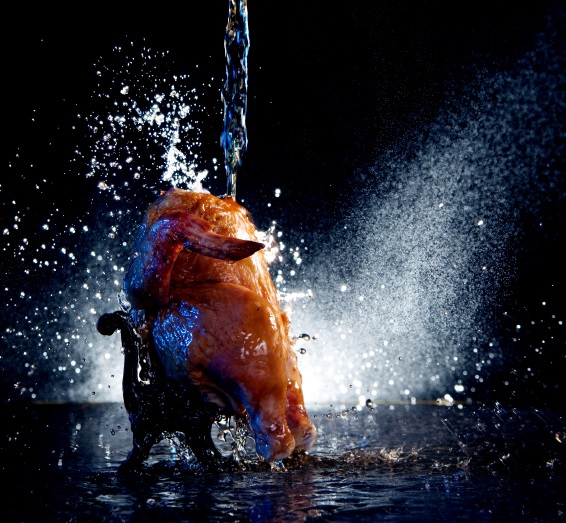
News Article
Being thankful, not wasteful this holiday season
Hosting a holiday feast? Follow these 20 tips to save water before, during and after your meal.
Are you hosting a family dinner this holiday season? If so, it could mean unnecessary water waste in your home.
Thankfully, it’s easy to keep water usage to a minimum; just follow these simple tips compiled from Denver Water’s efficiency experts, the Environmental Protection Agency’s WaterSense program and Water — Use It Wisely.
Meal prep
- Don’t use running water to thaw a frozen turkey or other food. For water efficiency and food safety, defrost food in the refrigerator.
- Wash vegetables and fruits in a bowl or basin using a vegetable brush instead of letting water run. Use the extra water on plants.
- Cook food in as little water as possible. This also helps it retain more nutrients.
- Select the proper pan size for cooking. Large pans may require more cooking water than necessary.
Dinner time
- Enjoy the side dishes! Corn, apples and potatoes require only 158, 99, and 34 gallons of water per pound to grow, respectively. Meats such as beef and lamb require many more times the amount of water per pound to produce.
- Reuse leftover water from cooked or steamed foods to make a nutritious soup.
- Designate one glass for each guest to use for drinking water. This will cut down on the number of glasses to wash.
- Food waste is water waste. It takes about 520 gallons of water to produce one pound of turkey meat. To avoid scraping leftover food in the trash, serve smaller portions and invite guests to bring containers to take extra food home.
- Chill drinking water in the refrigerator instead of running the faucet until the water is cold.
Clean-up
- Scrape dishes — don’t rinse — before putting them in the dishwasher. Energy Star-qualified dishwashers and today’s detergents are designed to clean without needing a rinse.
- Make sure the dishwasher is full before running it. Avoid cycles like pre-rinse and rinse-hold that use heated water but may not be necessary to clean your dishes.
- Reduce the number of times you run your garbage disposal by composting foods that are not salty, greasy or dairy. Even if you live in an apartment, you can still compost by learning to do worm-composting. Compost can also be made from your fall leaves. Ask your Colorado State University Cooperative Extension expert for more details.
- When washing dishes by hand, don’t let the water run. Fill one basin with wash water and the other with rinse water.
- Soak pots and pans instead of letting the water run while you scrape them clean.
Kids
- Need something for the kids to do? Here are some fun online games from Water — Use It Wisely.
- Teach children to turn off faucets tightly after each use.
- Reward kids for the water-saving tips they follow.
Before the next party
- Check your toilet for leaks by putting a few drops of food coloring in the tank and waiting 5 to 10 minutes. If the color shows up in the toilet bowl, you have a leak. Replace that leaky toilet with help from a Denver Water rebate.
- Install water-saving aerators on all of your faucets.
- Grab a wrench and fix that leaky faucet. It’s simple, inexpensive, and you can save 140 gallons a week. Learn how to use your water meter to check for leaks.
Happy holidays!

